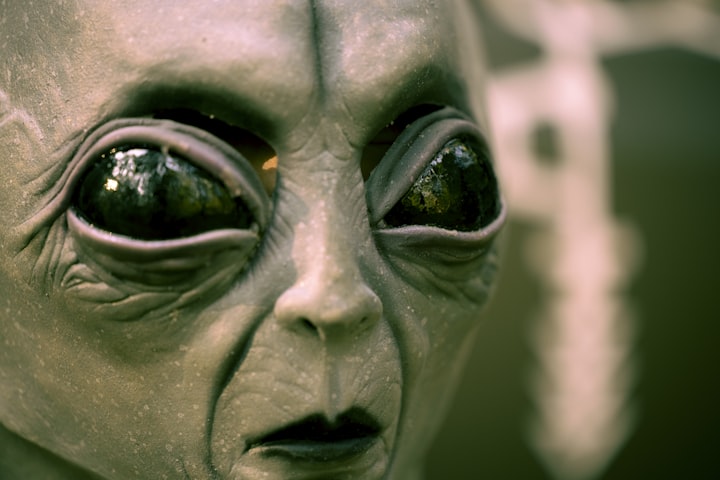Aliens: Separating Fact from Fiction
Exploring the Evidence (or Lack Thereof) for Extraterrestrial Life

The possibility of the existence of extraterrestrial life has been a topic of interest for many years. With the vastness of the universe and the billions of galaxies, it seems almost improbable that Earth is the only planet with life. However, the question remains: do aliens truly exist, or is it all just imagination?
The idea of extraterrestrial life has been present for centuries, with ancient civilizations depicting creatures from other worlds in their art and stories. The concept gained more traction in the 20th century with the rise of science fiction and advancements in space exploration. However, despite numerous UFO sightings and claims of alien encounters, there has been no concrete evidence to support the existence of extraterrestrial life.
One of the most common pieces of evidence cited in support of aliens is UFO sightings. UFO stands for Unidentified Flying Object, meaning that the object in question cannot be identified as a known aircraft or natural phenomenon. While there have been countless reports of UFO sightings over the years, it is important to note that just because something cannot be identified does not mean it is extraterrestrial in nature. There are many natural phenomena that can create unusual lights or shapes in the sky, such as weather balloons, drones, or even just atmospheric conditions.
Another common argument in favor of aliens is the existence of crop circles. These mysterious patterns that appear in fields overnight have long been attributed to extraterrestrial activity. However, studies have shown that many crop circles are actually hoaxes created by humans using simple tools and techniques. While some patterns may be harder to explain, it is important to remember that just because we cannot immediately explain something does not mean it is supernatural in origin.
Despite the lack of concrete evidence, many people remain convinced that aliens are real. One reason for this could be the psychological phenomenon known as confirmation bias. This is the tendency for people to search for and interpret information in a way that confirms their preexisting beliefs. If someone already believes in aliens, they may be more likely to see patterns in supposed UFO sightings or interpret unexplained phenomena as evidence of extraterrestrial activity.
On the other hand, some argue that the lack of evidence for aliens is itself evidence that they do not exist. With all the technological advancements we have made in recent years, it seems unlikely that we would not have discovered some form of extraterrestrial life if it existed. Additionally, the conditions required for life as we know it are incredibly specific, and it is unclear whether those conditions are present on any other planet in the universe.
Despite the lack of concrete evidence, the search for extraterrestrial life continues. In recent years, scientists have made significant strides in the search for exoplanets, or planets outside of our solar system. The discovery of exoplanets in the habitable zone, meaning they are at a distance from their star that allows for the possibility of liquid water and therefore the potential for life, has raised excitement in the scientific community. While the discovery of a habitable exoplanet does not necessarily mean that there is life on it, it does increase the possibility.
Additionally, NASA's Mars Rover missions have uncovered evidence of water on the red planet, leading some to speculate that there may have been or still could be life on Mars. However, it is important to note that the presence of water does not necessarily mean the presence of life, as there are many other factors that must be present for life to thrive.
In conclusion, the question of whether aliens exist is still unanswered. While there is no concrete evidence to support their existence, the vastness of the universe and the possibility of habitable exoplanets make it seem unlikely that Earth is the only planet with life. However, until concrete evidence is found, it is important to approach the idea of aliens with a healthy dose of skepticism and to avoid confirmation bias
About the Creator
shankar jadhav
delivering quality content. I have a keen eye for detail, and my writing style is both engaging and informative. I have a strong background in research, and I am always looking for new and interesting topics to write about.






Comments
There are no comments for this story
Be the first to respond and start the conversation.